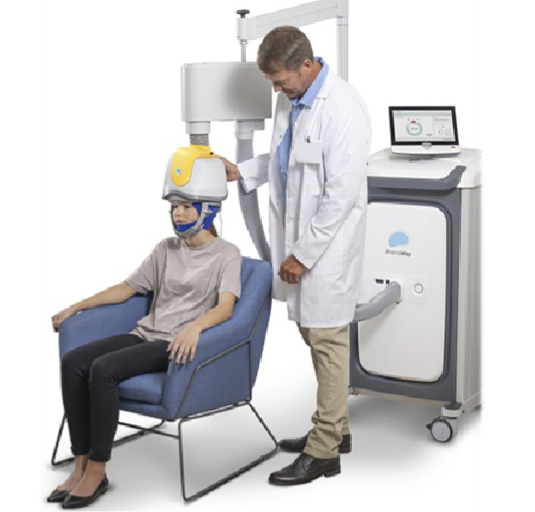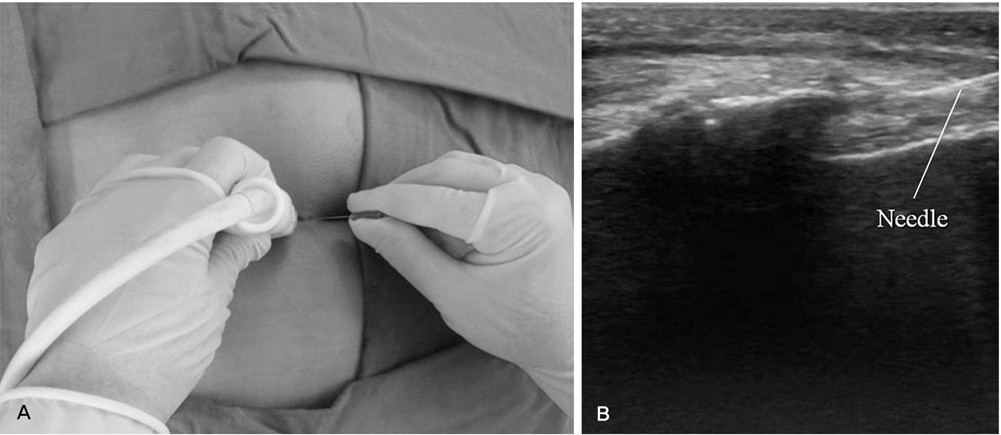

Pain Management
Pain is a complex process and Neurosciences approach pain management from different angles. At the originating site (joint, spine, muscle, tendon) pain receptors send signals through the nerves towards the brain. Specialized centers in different areas of the brain interpret those signals as as painful. The originating organ or body part sends these signals as result of injuries, age-related degenerations or chronic disease processes like osteo-arthritis.
Pain management, to be effective, and especially for the long run, must address the entire loop, starting at the origin site but also at the nerves that bring signals from the injured joint or organ to the brain and the nerves that bring sensations down to the end organs or parts of the body.
At Neuro Center Miami we specialize in managing the pain in all those areas, starting with procedures at the originating site with steroid or biologicals injections to joints (shoulder, knee, elbows etc), nerve blocks and ablations, and brain stimulation technique. The latter is used in cases where the pain is not resolved after injecting the joints or organs and blocking the nerves. Using deep Transcranial Magnetic Stimulation (BrainsWay) the areas of the brain responsible for pain interpretation can be modified by the electrical impulses from the machine.
- Joint and Spine steroid/biologicals injections
- Nerve and Plexus blocks
- TMS Transcranial Magnetic Stimulation
By using this comprehensive approach, we have been able to help hundreds of patients with pain after injuries in car accidents, sport accidents, slip and falls and also people suffering from chronic conditions like osteoarthritis, meniscus degeneration, inflammatory arthritis and others.
A healthy brain is essential for a long, fruitful life. However, with age, the risk of neurological disorders increases greatly. Neurological disorder is an umbrella term that comprises a variety of conditions that affect the brain and the nervous system. More than 600 neurological disorders have been identified that range from an injury to neurodegenerative diseases like Alzheimer’s or Parkinson’s. A neurological disorder may also lead to mental illnesses, such as depression, anxiety, or mania.
Multiple factors are responsible for neurological disorders. One of the major causes of neurological disorders is the mutation (change) in genes. Our lifestyle can significantly influence the well-being of our genes. Alcohol and tobacco are categorized as neurotoxins, and exposure to these may cause changes in our genetic composition, leading to neurological disorders. However, according to epigenetics and other modern scientific studies, sometimes genetic changes may occur without the influence of lifestyle or any external factors.
What is “The Brain Protocol”?
The brain protocol emphasizes on creating a personalized program for every individual based on detailed consultations and neuro-psychological, radiological, and in-depth laboratory testing. The protocol is an amalgamation of multiple medicinal therapies and modern technological approaches.
The brain protocol consists of the following components:
Transcranial magnetic stimulation (TMS):
TMS is FDA-approved for Major Depression and Obsessive Compulsive Disorder (OCD) but many studies have also proven beneficial for other neurological diseases, including Cognitive Decline, Anxiety, Alzheimer’s’ disease, Parkinson’s disease, recovery after Stroke, Addictions, Tinnitus Smoking Cessation and many others. In TMS, magnetic pulses are delivered to an area of the brain to activate the area and stimulate the nervous system.
Bio-identical hormones:
Low levels of DHEA has been found in patients with Alzheimer’s disease and people with low levels of DHEA might be at risk of developing the disease. About 65% of women have dementia, and the hormonal imbalance caused by aging may be a vital component of its onset. Before or during menopause, a woman may suffer from depression, confusion (brain fog), anxiety, cognitive changes, and mood swings due to hormonal changes. The decline in Testosterone in men has also been linked to cognitive decline and most men who receive Testosterone Replacement Therapy reports improvement in concentration and memory.
Dr. Adonis offers bio-identical hormone therapy that will help restore the hormonal balance and aid in reducing the symptoms during menopause.
Bio-identical hormones are naturally derived from soy, yam, or natural plants and, therefore, have insignificant or no side effects. Moreover, they are specially made for each person based on their needs. Dr. Adonis has successfully managed the treatment of women undergoing menopause, even for symptoms other than the neurological ones.
Intravenous vitamins and supplements:
Vitamins are vital for the optimum functioning of the brain. The deficiency of vitamins, particularly the B group, causes various neurological and psychological problems. Dr. Adonis recommends suitable vitamin supplements and a tailor-made diet plan as per the person’s requirement. Administering vitamins intravenously ensures that they get absorbed in the blood rapidly and help repair damaged nerves.
Detoxification:
It means the elimination of toxic substances from the body. Many toxins from the environment accumulate in the cells and cause inflammation and damage to the immune system. Dr. Adonis provides a detoxification program that includes the administration of nutritional supplements that break down toxins into water-soluble components and eliminating them from the body. A detoxification program is a combination of various processes and includes keeping the body active, developing a positive attitude, proper eating habits and living right, and cleansing. The program also aids in restoring the essential components of the body and the elimination of toxins.
Meditation, prayer, and spiritual approach:
A very important aspect in the treatment of neurological disorders is the spiritual and mental health of a person. Prayer and meditation help in reducing anxiety and stress and can restore inner calm and peace. A spiritual approach enhances patience and tolerance and helps individuals deal with their conditions better.
